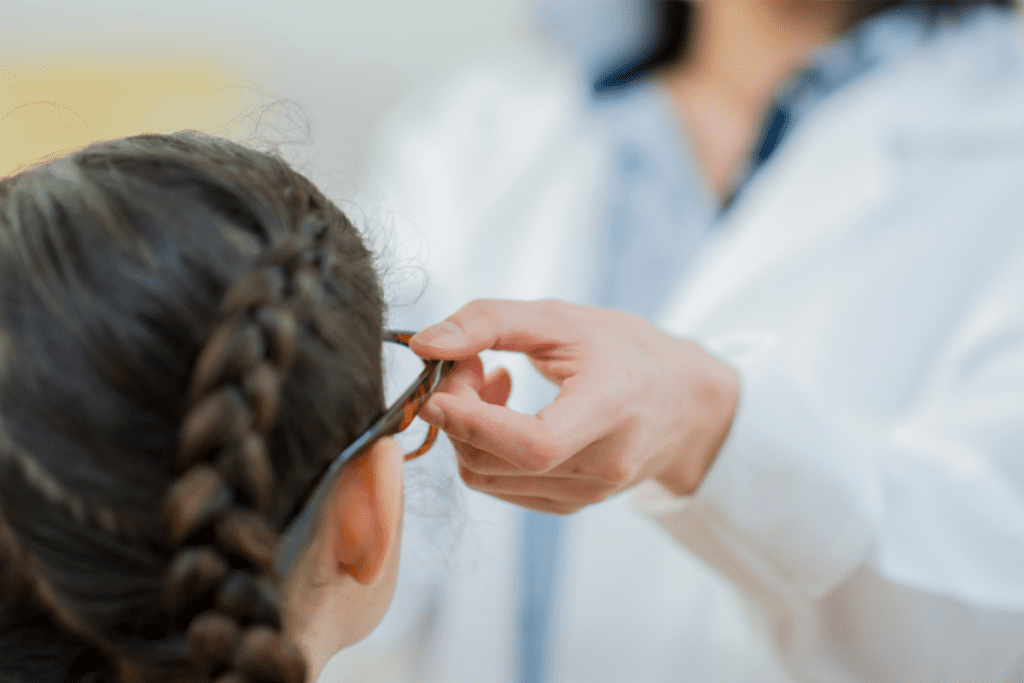Vision: it has an enormous impact on how we live our lives and how we learn. It influences our social, motor, cognitive and academic development from day one. The first time parents usually think of having their child get an eye exam is when they start school. However, the American Academy of Optometry recommends that each child receive a baseline eye exam between 6 and 12 months old, a second eye exam between years 3-5 to check for any conditions that could have long-term effects, followed by an annual comprehensive eye exam sometime before first grade.
Many Children are Born Farsighted
Many children are born with a hyperopic, or farsighted, prescription. This is normal and necessary for the healthy development of a child’s eyes and vision. As the child’s eyes develop, they should naturally emmetropize, which means it reaches a point of no prescription. If the child is born already emmetropic or even further, myopic (near-sighted), this can lead to the development of a high myopic prescription and lead to higher risk of ocular conditions such as myopic maculopathy, glaucoma, and retinal detachments.
There are multiple treatments available for myopia control including eye drops, contacts lenses, and specialized glasses. It has also been shown that spending more time outdoors can slow the progression of myopia. An evaluation by your local optometrist or pediatric ophthalmologist can be performed to determine which would be the best treatment method and follow up schedule for your child.
Vision Screening
A vision screening whether it be at school, at a health fair, or even in the pediatrician’s office is a great start to eye care but is not equivalent to a dilated comprehensive eye exam by an optometrist or ophthalmologist. A vision screening estimates the visual acuity of the eyes, it does not determine if someone needs glasses and does not check the overall health of the eyes.
Learning Difficulties
If a child is struggling in school and is suspected to have a learning disability, any vision issues should be ruled out prior to a learning disability diagnosis. Difficulty seeing in the distance or near can delay a child’s learning and make it more challenging for them to pay attention during school. Eyes can also have motility issues making it difficult to focus on objects for long periods of time. These issues can also be evaluated during an eye exam.
Once children have had a baseline eye exam it can be decided whether glasses, contacts lenses or any other treatment modality can be used to correct their vision. A normal age to consider contact lenses is usually older than 10 years old. If the patient is considering contact lenses for the purposes of myopia control, they can be fitted for contacts at an even younger age.
Glasses are also a great option for children needing vision correction. Parents may be worried about glasses breaking or not fitting properly. There are special materials that frame manufacturers can use to make glasses more durable for kids and helpful straps that can be attached to keep them f rom sliding off during more active times. If a child is particularly active in contact sports it may be more beneficial to consider a sports goggle. These frames are very durable and fitted to stay in place while playing sports.
Many thanks to Dr. Larissa Brigham, O.D., at SSM Health Davis Duehr Dean Eye Care for sharing her expertise on pediatric eye care.
Learn more about SSM Health Davis Duehr Dean Eye Care
SSM Health Davis Duehr Dean Eye Care, located at 1025 Regent Street in Madison, WI, is a comprehensive eye clinic that offers ophthalmology, optometry, contact lenses and a full service optical store. Services include:
- Comprehensive pediatric and adult eye exams
- Pediatric and adult eye disease management and care
- Refractive and cataract surgery consultations and post-op care
- Glaucoma diagnosis and treatment
- Guaranteed contact lens fitting
- Latest in fashion eyewear and a one-year warranty on all frames and lenses
- Optical Finishing Lab
- Full spectrum of sub-specialties, including oculoplastics, cornea and retina care
Phone: 608-282-2000











